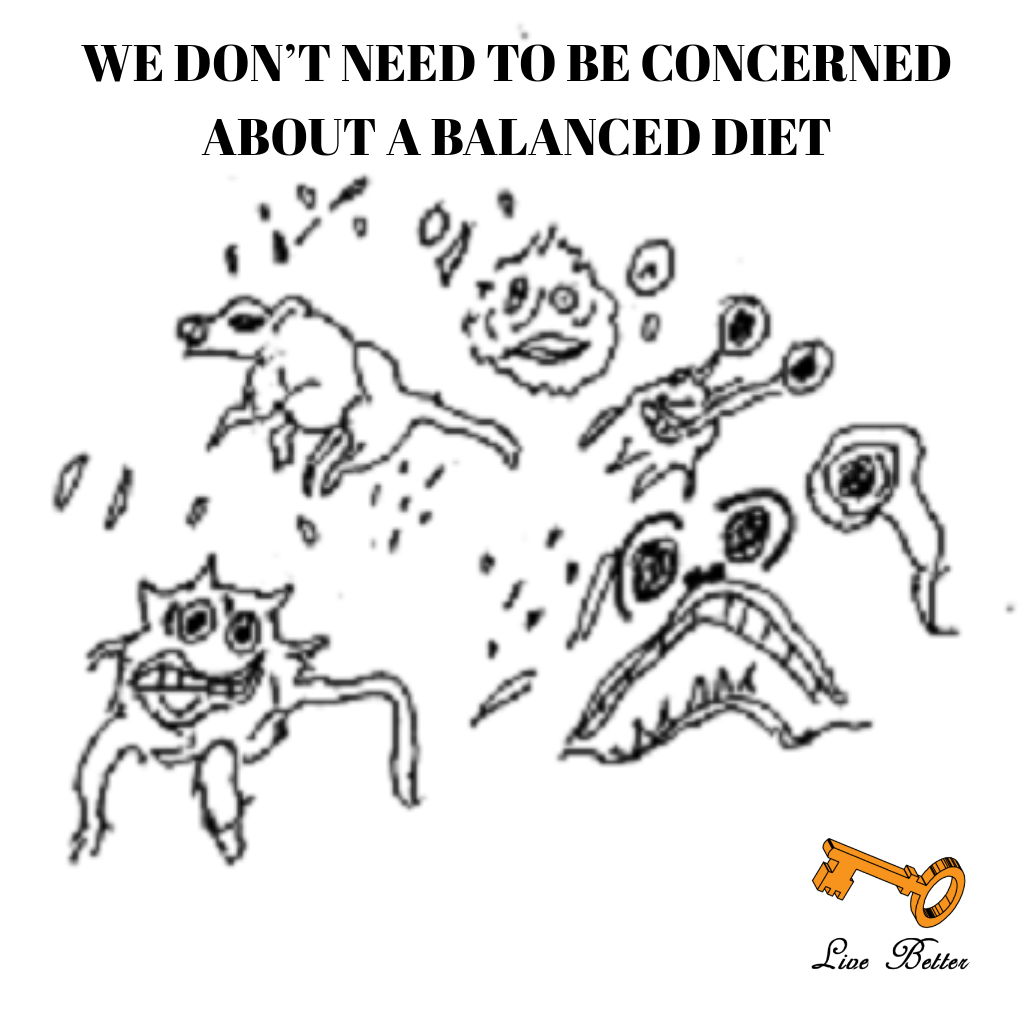THINK WATER GOOD HEALTH

We need about 90 Essential Nutrients to have strong healthy bodies. We should get these from our food and water. If our food is grown in good dirt and the nutrients not processed out, we don’t need supplements. We also need plain ground water—not distilled water. Dirty water is loaded with nutrients.
These essential nutrients can be placed into six major categories according to their functions:
- Water. Helps remove wastes, transports nutrients and regulates the body temperature—among its many functions.
- Protein. Builds our bodies, and is needed for many other tasks.
- Carbohydrates. Provides energy. The brain runs on carbohydrates.
- Fat. A storage of energy, among its many purposes.
- Vitamins. Provides the body with necessary elements for survival.
- Minerals. Build bones, teeth, muscles—the list goes on.
Plain Groundwater Should Supply Many Basic Minerals
Plain water from wells and springs can be a blessing to our bodies. Groundwater can supply us with a variety of Minerals and other nutrients. The Contribution of Drinking Water to Mineral Nutrition in Humans, focusing on the positive effects of suites of elements that are known or assumed to interact in the environment or in biological systems. (General Considerations of Mineral Intake form Water. Drinking Water and Health. [National Academy of Sciences, 1977])
Water Supplies Nutrients for Infants and Children
- A baby (about 15 pounds) consumes about 1/3 the amount of water as an adult, but their weight is about 1/10 of an adult. {National Academy of Sciences, 1974} For this reason, the water intake of an infant may contribute a significant quantity of a given element.
We Need Five Major Trace Elements in Our Bodies
- Calcium, Phosphorus, Potassium, Sodium and Magnesium. The other minerals are known as Trace Elements—we still need them.
- The essential minerals our bodies need include gold, silver and iron.
- Lead and arsenic are essential for a healthy body. The problem is what amount to consume?
- ‘Lead deficiency anaemia’ produced growth defects in second-generation rats, in a 1981 study.” (UCLA’s Molecular Biology Institute.)
- These nutrients are deposited into our bones, muscles and overall bodies, and are withdrawn as needed.
- We don’t need to go further into this discussion. I only want to point out the basics. If you want to follow up on this subject please follow this link.
This Soup of Nutrients is Not Completely Understood by the Medical World
- We don’t need a balanced meal three times each day. That is a bogus contrivance that has been force-fed to us.
- A gestating lady needs all the nutrients to build the body of the infant. Nature says the fetus must be nourished or aborted. Thus, the species propagates.
- A mother’s body will even be sacrificed as the fetus needs these essential nutrients. Normally, enough is stored in the mother’s bones, muscles and fat to satisfy the fetus’s needs.
- I believe a woman is made stronger with these challenges, and their physical and mental changes.
Our Basic Nutrients Can be Obtained from Our Basic Foods and Water
- A wide variety of Food grown in good soil will supply our needs. This includes quality meats, dairy, eggs and fish.
- Generally, produce, fruit and berries with the deepest color. It seems that nature designed our eyes to sort out what is best for us.
- I am not fond of distilled water. I think basic groundwater is best, as it supplies a lot of minerals.
- I am not fond of pond-raised fish—for similar reasons.
- Also, processed foods might be altered for shelf life, and for appearance.
People in the Third-World Countries Drink Dirty Water and are Healthy
- I suspect that one reason people in countries like India prosper is they get a many of their basic nutrients form dirty water. This flies in the face of our clean-water practices.
- The concept of Hygiene Hypotheses says we suffer many health problems because our immune system doesn’t understand the germs we encounter. Lack of early childhood exposure.
| Tags | Category | Author |
|---|---|---|
| Tags: Nutrition, Water | jerry |